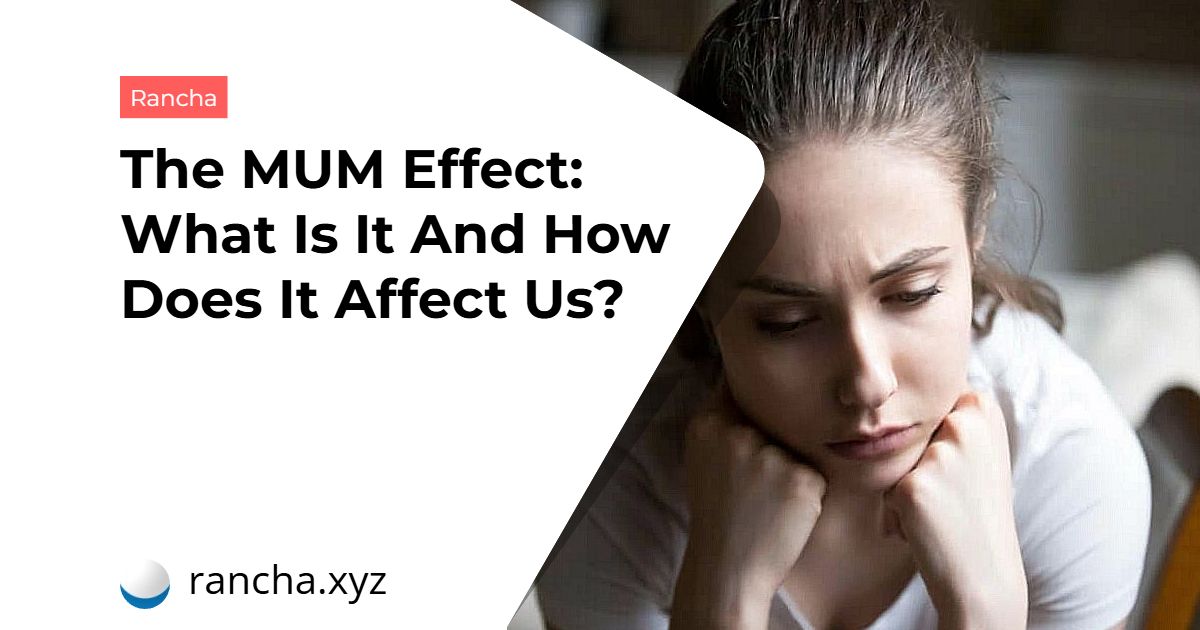Within the scope of social psychology there are multiple interesting phenomena that allow us to understand why we act in a certain way when we relate to others. The MUM effect would be one of these phenomena and is understood as the act of resisting giving bad news for fear of being associated with it.
The social environment conditions our way of acting and this explains, among other factors, why the presence of others influences our behavior and our way of thinking or feeling. As we will see later, this has a lot to do with an effect that happens frequently and is related to the avoidance of feelings of guilt and the attempt to maintain our self-esteem : the MUM effect.

What is the MUM effect?
The MUM effect happens when, at the time of communicating bad news, we show resistance, even distorting and making up the information so that it is not negative. That is, it involves a certain fear of communicating bad news for fear of being associated with it (having or not having anything to do with the news, after all). In turn, this fear is based on the fear of being seen as less attractive.
This effect happens in the face of all kinds of news, whenever they are negative (such as someone’s death, an accident, a critical or harmful medical situation, etc.). In addition, the MUM effect occurs under all kinds of circumstances and possible recipients of the news (be it family, friends, a partner, etc.).
Although this is a very frequent phenomenon, we cannot say that it is universal. A clear example of this can be seen in myths, rumors and newspapers: don’t you get the feeling that they always convey bad news?
How does this affect us?
As we can deduce from what was mentioned above, although the MUM effect exists and is frequent, it is not universal. It is common in cases where news conditions or concerns our well-being or the well-being of the news receiver or receivers. How does this affect us?
Basically, as follows: when we need to communicate bad news, we resist or consciously modify the message so that the news doesn’t seem so negative. This happens, as we have said before, out of fear of being associated with it (as if we had something to do with its cause, even if that is totally irrational).
Here, we must clarify that professionals who face the daily challenge of communicating bad news (such as doctors, for example) certainly have greater resistance to the effect and do not modify their message. After all, that’s part of their job and they can’t distort reality, which doesn’t mean they don’t suffer from breaking bad news.
In the end, we are all human and it is normal to feel this fear, discomfort or discomfort. Who wants to communicate negative news? Probably no one. Thus, with the MUM effect, we would be trying to “compensate” for our own fear and discomfort, in addition to the possible pain we would be causing others by communicating what happened.
Causes of the MUM Effect
How does this phenomenon happen? We’ve already said that it has to do with the fear of being seen as less attractive, but what are the underlying causes? Why do we want to feel attractive to others?
Some of the theories that talk about this are reinforcement theories (Lott and Lott, Byrne). According to these theories, there is an attraction to people who are present or who do something that activates an affect (whether positive or negative). In addition to theories of reinforcement, being liked by others is a universal concern.
On the other hand, there is a cognitive bias that affects our view of reality: the so-called “belief in a just world” . Through it, we have the irrational idea that the course of events must be fair to everyone involved (or “that each one has what he deserves” ). This false belief could also explain why we resist giving bad news to those we feel “don’t deserve it.”
Why don’t we want to give bad news?
Returning to the MUM effect and what we were talking about, the reality is this: nobody likes to give bad news. But why? Some of the causes that explain why it is difficult to give bad news and which are supported by scientific research are as follows:
- We care about our well-being and therefore we want to avoid feeling guilty about communicating bad news.
- We don’t want to harm others (and that would be explained, in large part, by empathy).
- We use certain social norms as guides when behaving (we have a series of ideas about “how to do things right” ).
- We are worried (or afraid) of being associated with the bad news we need to share (and thus becoming less attractive to others).

There are no magic formulas for breaking bad news
There are no valid rules that tell us how to act all the time. The same thing happens with bad news: there is no perfect protocol or magic formula for communicating it that completely mitigates its negative impact.
However, there is the Baile-Buckman Protocol, published in 2006 in the Revista Medicina Intensiva, which offers some practical ideas on how to do this.
Yes, it is likely that the MUM effect always exists due to the human tendency that we have to want to avoid harming others. This tendency, in large part, would be explained by the desire to be accepted and maintain good self-esteem. Furthermore, empathy would also make this phenomenon understandable.
 rancha.xyz Be free to choose their own route to self-knowledge, health and balance of body and soul.
rancha.xyz Be free to choose their own route to self-knowledge, health and balance of body and soul.




